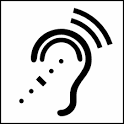Today I went to a venue to book for an area for an after-work drink for approximately 15 people next Tuesday. After taking  down the information, the hostess asked since it is a quiz night with a 50-pound cash prize tonight, would I like to SWITCH the reservation from next Tuesday to tonight? I held back my tongue and mockery and firmly said “No, thank you”. Do I really want to ask 15 people to change the agreed date for a quiz night with such an extravagant prize?
down the information, the hostess asked since it is a quiz night with a 50-pound cash prize tonight, would I like to SWITCH the reservation from next Tuesday to tonight? I held back my tongue and mockery and firmly said “No, thank you”. Do I really want to ask 15 people to change the agreed date for a quiz night with such an extravagant prize?
To test my common-sense and patience further, she then told me that the reservation was done for the basement which was the default. I forced myself not to roll my eyes and told her calmly that I prefer the bar at the street level with glass windows. Is she serious that customers prefer the “dungeon” with no windows nor trace of civilization than the bar at the street level?
Not sure if it was a case of ignorance or a trap. It was certainly a test of my mockery and patience!
 it that much before. But now that I am taking 3 courses outside of work. I felt that I can definitely benefit from having a week off from my lessons.
it that much before. But now that I am taking 3 courses outside of work. I felt that I can definitely benefit from having a week off from my lessons.







